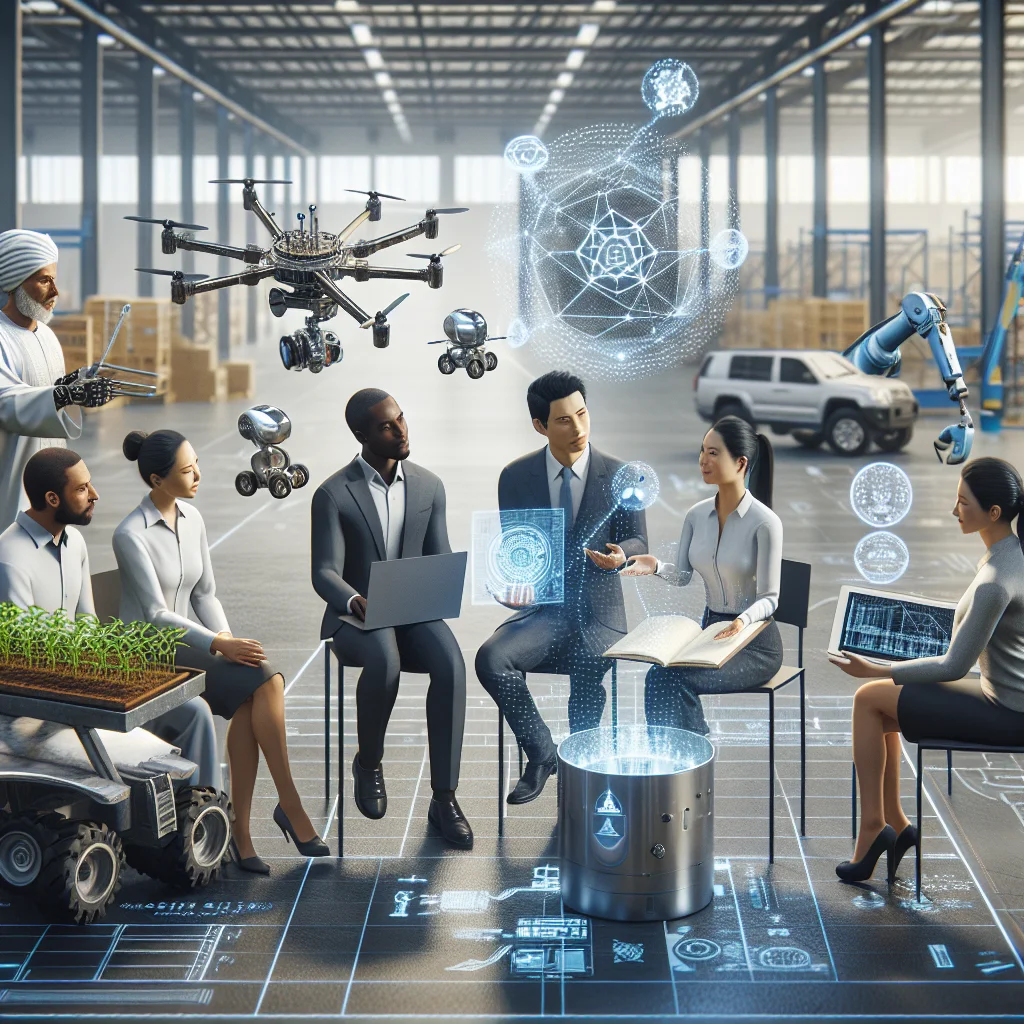Emerging AI Trends Shaping Global Industries in 2025
April 24, 2025

In the fast-evolving world of artificial intelligence, staying informed about the latest trends is essential for businesses and professionals alike. As 2025 progresses, we witness a significant shift in how AI technologies integrate across various sectors, redefining operational paradigms, enhancing user experiences, and driving innovation. This article explores several key AI trends making waves in the global landscape this year.
AI-Powered Automation and the Rise of Intelligent Assistants
Automation is not a new concept, but in 2025, we see AI-powered automation taking center stage in organizations of all sizes. Intelligent assistants, built on advanced natural language processing (NLP) and machine learning algorithms, are becoming increasingly adept at handling complex tasks that require human-like reasoning. These systems can manage scheduling, customer queries, data analysis, and even project management, thereby increasing efficiency and productivity.
For example, companies like Zapier and Asana are incorporating AI features that allow users to automate workflows seamlessly. This not only streamlines operations but enables teams to focus on strategic initiatives, while routine tasks are handled by AI.
Enhanced Personalization in Consumer Interactions
In 2025, consumers expect personalized experiences more than ever, and AI is crucial in delivering them. High levels of personalization are achieved through sophisticated algorithms that analyze vast amounts of data on consumer behavior. Brands are harnessing this capability to tailor recommendations, advertisements, and even customer service interactions.
Companies such as Amazon and Netflix are at the forefront of this trend, utilizing AI to recommend products and content based on individual preferences and prior interactions. This personal touch fosters deeper customer loyalty and significantly boosts conversion rates by providing relevant options that resonate with users.
Generative AI and Its Transformative Potential
Generative AI has surged in popularity, revolutionizing how content is created and consumed. From drafting articles to generating artwork and music, the applications of generative AI are vast. In 2025, platforms like OpenAI’s ChatGPT and Google’s Bard are further refined, enabling creators to produce high-quality content rapidly and at scale.
This trend serves various industries, including marketing, education, and entertainment. For instance, marketers leverage generative AI to create personalized email campaigns that resonate with specific audiences. In education, AI tools help generate adaptive learning materials that cater to individual student needs, thus enhancing learning outcomes.
AI Ethics and Responsible Innovation
As AI technologies proliferate, ethical considerations have never been more critical. In 2025, companies and policymakers are increasingly focused on ensuring that the deployment of AI systems aligns with ethical guidelines, transparency, and accountability. Organizations are implementing AI ethics frameworks to guide their AI projects, addressing biases and ensuring fairness in AI algorithms.
Prominent tech companies are now employing diverse teams to develop AI, helping mitigate biases that can arise from a lack of representation in development processes. Moreover, regulatory bodies are formulating policies to oversee AI implementations, ensuring that they promote good practices in user privacy and data security.
AI in Healthcare: Advancements and Impacts
The healthcare sector is experiencing unprecedented innovation driven by AI technologies. In 2025, AI is playing a pivotal role in diagnostics, patient care, and treatment planning. Machine learning models are being used to analyze medical images, identify diseases, and predict patient outcomes with remarkable accuracy.
Telemedicine, powered by AI analytics, is on the rise, enabling remote diagnosis and consultation. Startups like Tempus leverage AI to analyze clinical and molecular data to help physicians make more informed treatment decisions. This not only improves patient experiences but also enhances the efficiency of healthcare delivery.
AI-Driven Sustainability Initiatives
As the world increasingly focuses on sustainability, AI technologies are instrumental in driving eco-friendly practices. In 2025, AI is being used to optimize energy consumption, improve supply chain logistics, and facilitate waste management. For instance, predictive analytics help companies forecast demand more accurately, allowing for reduced waste and optimized resource usage.
Furthermore, initiatives utilizing AI for monitoring and protecting biodiversity are gaining traction. Machine learning algorithms analyze environmental data to predict trends and assess the health of ecosystems, enabling timely interventions that promote conservation efforts.
Conclusion
The landscape of artificial intelligence in 2025 is characterized by rapid evolution and integration across multiple industries. From increased automation and personalized consumer interactions to ethical considerations and healthcare advancements, AI continues to empower businesses and enhance user experiences. As we move forward, understanding and adapting to these trends will be crucial for leaders and stakeholders across all sectors, ensuring they remain at the forefront of innovation in an increasingly digital world.
Back